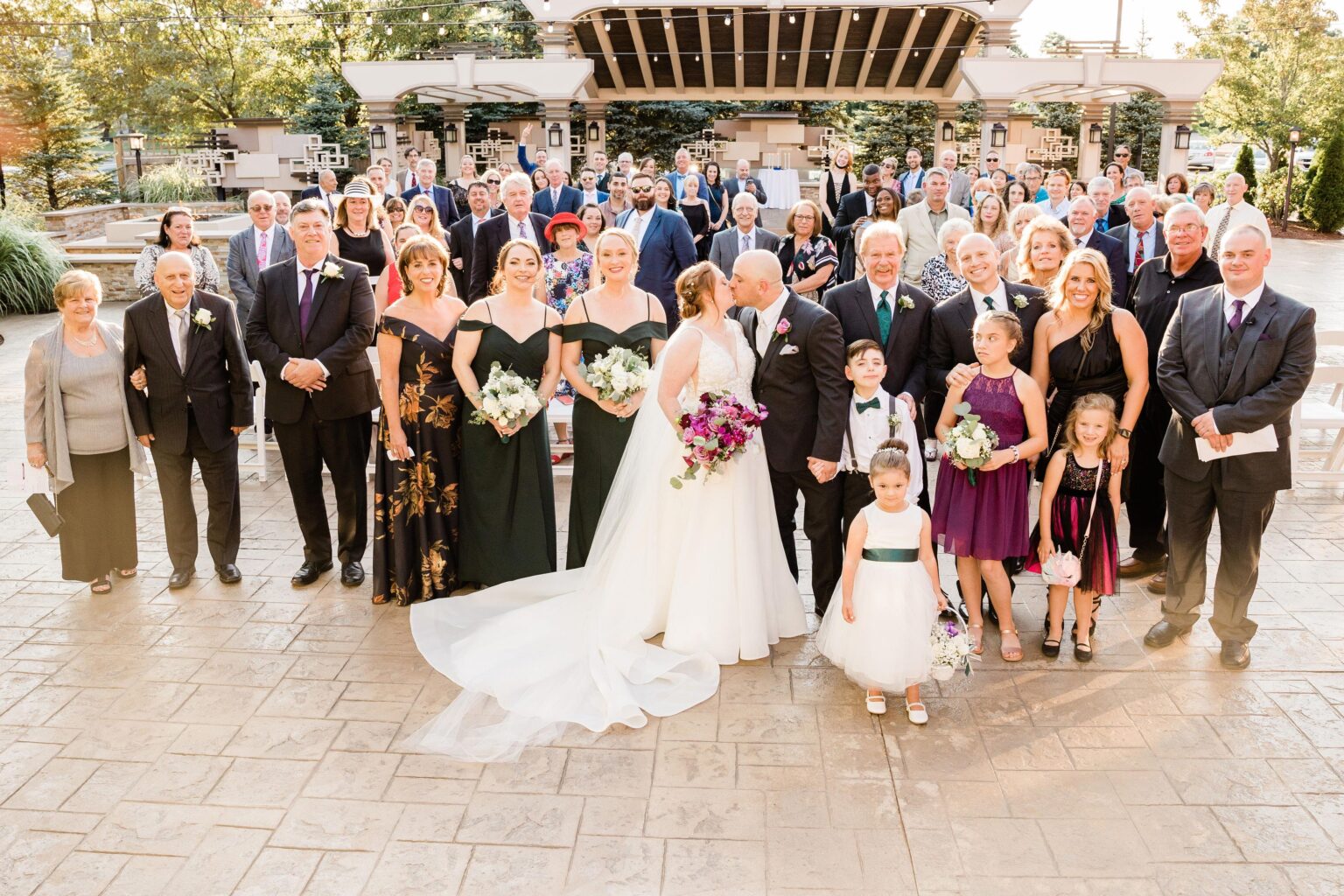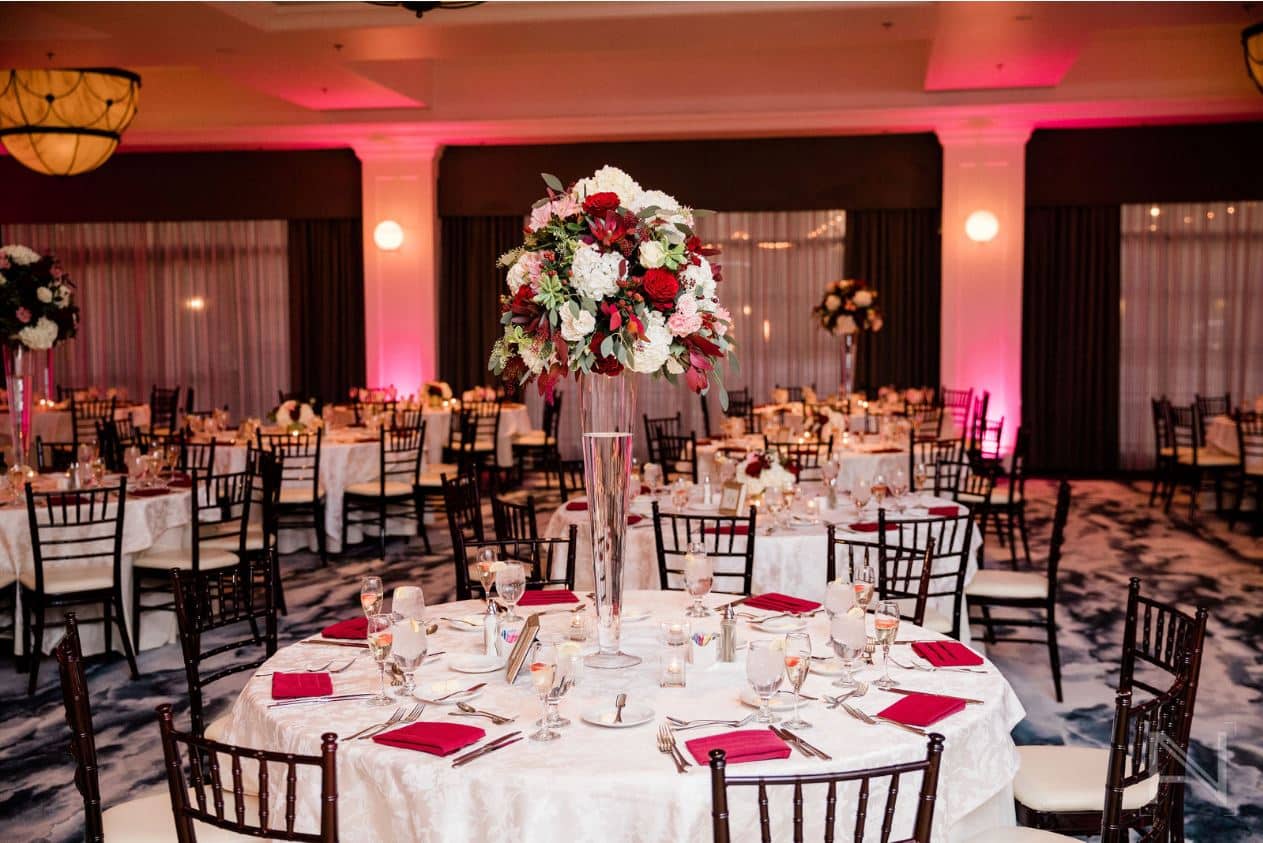Planning a wedding is always a juggling act, budgeting, design, logistics, and timing but in 2025, one more variable has entered the equation: wedding tariffs. Across the U.S., new import duties and trade policies are increasing costs, slowing supply chains, and pushing vendors and couples to adapt. As a wedding venue, we at the Tiffany Ballroom want you to go into your planning with eyes wide open and strategies in hand so your big day can stay magical without hidden surprises.

Why Tariffs Matter for Weddings
Wedding tariffs are taxes imposed on goods imported from other countries. When the U.S. government places or raises tariffs, the cost of those imports increases and those costs often ripple through the supply chain, ultimately affecting wedding goods and services
Because weddings rely heavily on imported items such as bridal gowns, fabrics, favors, décor, flowers, and specialty products they are particularly vulnerable to this kind of inflation. Here’s how that’s playing out across the industry:
- Wedding Dresses & Attire
Many bridal gowns and suits are produced overseas in countries like China, Vietnam, and India. When tariffs apply to these materials or finished goods, boutiques may see cost increases of 15–30% (ALHI).
Some brides have already seen price increases of $150–$400 on dream gowns due to new import costs (Idaho Business Review). - Décor, Textiles, and Florals
Many linens, drapery fabrics, and decorative items are sourced internationally. Rising tariffs on textiles and imports can inflate rental or purchase costs. Premium flowers, especially roses and tropical varieties often come from South America, where tariffs and supply chain disruptions can create both higher prices and unpredictability (Ap news). - General Supply Chain Delays
Beyond pricing, tariffs have also slowed delivery timelines. Studies show imported materials now experience average delays of 21 days due to extended customs processing and supplier adjustments (Harvard Business Review). For weddings, this can mean last-minute substitutions or stress when waiting on key items. - Vendors Passing Costs to Couples
With increased overhead, many vendors are adding temporary “tariff surcharges” or revising their pricing structures. As one industry professional noted, “Boutiques will either be raising prices permanently or passing along a percentage surcharge” (Reddit: Big Budget Brides). This trend has been echoed across national outlets such as USA Today, which reports that tariffs have become one of several compounding factors behind higher wedding budgets this year.
How to Avoid Falling Into Extra Costs
The good news? You can still plan a beautiful, stress-free wedding, you just need to plan smarter. Here’s how: - Ask Detailed Questions Early
When meeting with vendors, ask if their products are imported and whether recent tariffs could affect pricing. Understanding the supply chain behind your purchases helps you anticipate changes and avoid surprises. - Order Sooner Rather Than Later
If you know what you want, book early. The earlier you commit, the less likely you’ll be hit with price adjustments tied to new tariffs or shipping delays. Especially if you are a DIY bride relying on sites like Temu and Shein. - Choose Local or Domestic Suppliers
Many talented artisans, designers, and growers operate right here in New England. By sourcing locally, you can avoid international tariffs, support small businesses, and enjoy shorter delivery times. - Simplify Imported Details
Consider alternatives to imported extras like seasonal local flowers instead of out-of-season imports, or American-made linens and tableware for your reception. Sustainability meets savings. - Work With an Experienced Venue Partner
A venue like the Tiffany Ballroom can help streamline planning with in-house catering, décor partnerships, and vendor recommendations that already account for current market conditions. We’re constantly monitoring supplier trends so you don’t have to.

Beyond Tariffs: Other Cost Factors to Watch
While tariffs are a headline issue, they’re just one piece of today’s wedding budget puzzle. Couples should also keep an eye on:
- Inflation in food & beverage: Global ingredient costs continue to fluctuate with many popular items facing periodic shortages and price spikes.
- Labor shortages Skilled service providers are in high demand, affecting staffing fees.
- Energy & logistics costs Fuel prices and transport surcharges can add up in rentals and deliveries.
By working with an established venue that negotiates bulk pricing and maintains trusted vendor relationships, you can stay protected from many of these fluctuations.
Final Thoughts
Wedding tariffs may be outside your control, but smart planning is not. By asking the right questions, sourcing locally, and partnering with experienced professionals, you can keep your wedding vision intact without overspending. At the Tiffany Ballroom, our team is here to help couples navigate these shifting market dynamics providing transparent pricing, reliable recommendations, and peace of mind every step of the way. Because no matter what’s happening on the global stage, your love story deserves to shine without compromise. Contact us today! We know that budgeting for your big day is an important part of the planning process, and we’re here to help. Try our Tiffany Ballroom Wedding Cost Estimator.